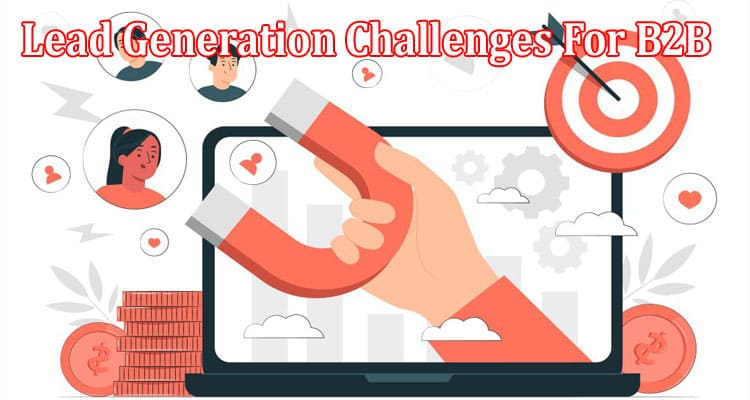Lead Generation Challenges For B2B
Lead generation is a crucial process that propels growth and success in the realm of business-to-business (B2B) marketing. Nonetheless, it comes with its own set of difficulties. Generating B2B leads demands a well-planned strategy, unwavering persistence, and the ability to adapt to the constantly evolving business environment. This article discusses the key challenges faced by B2B organizations when it comes to lead generation and explores strategies to overcome these hurdles.
Identifying and Reaching the Right Audience
Identifying and reaching the appropriate target audience is a significant obstacle in B2B lead generation. It is essential to focus on decision-makers who have the power to buy as B2B purchasers are typically busy experts with restricted schedules. Nonetheless, the process of discovering and interacting with these people can be quite intimidating.
In order to tackle this obstacle, businesses can implement a range of strategies. To begin with, carrying out comprehensive market research to pinpoint the perfect customer profile can offer valuable insights. The process involves examining the demographics, firmographics, and psychographics of the intended audience. By utilizing social media platforms, professional networks, and industry-specific forums, it is possible to establish connections with potential prospects. Moreover, collaborating with lead generation services that specialize in generating leads can aid in expanding the reach to a wider audience.
Nurturing Leads in a Complex Sales Cycle
Compared to B2C sales, B2B sales cycles are usually longer and more intricate. The intricacy of the matter frequently arises due to the participation of various stakeholders in the decision-making procedure, comprehensive exploration of the product, and the requirement for customized engagements. For B2B organizations, the challenge of nurturing leads throughout the sales cycle is of utmost importance.
To tackle this challenge, businesses must establish robust connections with potential customers and foster leads at every phase. By incorporating marketing automation tools, companies can create customized, focused communication strategies that provide valuable content and sustain audience involvement.
Generating High-Quality Content
B2B lead generation heavily relies on content marketing; however, producing top-notch content regularly can pose a major obstacle. Crafting content that connects with the intended audience, tackles their challenges, and offers meaningful perspectives demands careful strategizing and investigation.
To tackle this obstacle, companies can implement a content plan that is in sync with the desires and requirements of their intended audience. By conducting surveys, interviewing customers, and conducting industry research, you can pinpoint the subjects and styles that will have the greatest impact.
Adapting to Technological Advancements
The lead generation landscape is constantly changing due to the rapid evolution of technology. To remain competitive, B2B organizations must be willing to adapt. Staying updated with new technologies, tools, and platforms can be difficult, especially for small businesses with limited resources.
To tackle this challenge, companies can concentrate on keeping up-to-date with the newest technological developments pertinent to generating leads. Staying up-to-date with industry blogs, attending conferences, and connecting with other professionals in the field can offer valuable insights into new trends and tools. Regularly assessing and revising an organization’s technology stack is crucial to ensure that it meets the current requirements and objectives. Working with technology partners and b2b lead generation services can assist businesses in utilizing advanced solutions without overburdening their in-house resources.
Conclusion
Generating B2B leads can be challenging and requires thorough planning, flexibility, and ongoing enhancements. Organizations can achieve optimal lead generation, higher conversion rates, and sustainable business growth by directly confronting and resolving these challenges. To succeed in the ever-changing B2B marketplace, it’s important to adopt technology, cultivate potential customers, provide excellent content, and establish trust. These strategies will help you overcome obstacles and achieve your goals.




